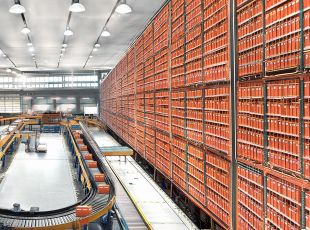Family businesses in Europe: an issue of economic independence
Numbering more than 14 million*, family businesses represent the vast majority of companies in Europe: 61% of companies in the Netherlands, and more than 80% in Spain and Italy as well as 54% in France. Nearly 50% of the top 1,000 Italian companies, for example, are family businesses. The legal framework plays a key role, as these companies are less prevalent in countries with a “common law” legal environment (such as the United States and the United Kingdom) than in those with a “civil law” environment, particularly in continental Europe.
What is a family business?
The European Commission defines a family business according to three criteria:
- OWNERSHIP A business is said to be family-owned when the majority of the capital belongs to the family and they ensure its governance.
- GOVERNANCE The family is involved in the management of the company, either directly (presence in the management team), or indirectly (via a power of appointment and dismissal of the managers placed at the head of the company), while being formally associated with the corporate governance. The family holds the majority of decision-making rights
- TRANSFER Once there has been an initial transfer or if there is a desire to transfer the business to a family member, it is deemed “family-owned”. Family businesses are present in all sectors of activity: consumer goods, IT sectors, media, but also in industrial sectors, particularly in countries with solid manufacturing bases.
According to Rachida Tournier, Deputy CEO in charge of the Entrepreneurs & Families segment, BNP Paribas Wealth Management: "Family businesses are one of the pillars and engines of growth of the European economy. They have proven their resilience and their major role in our societies, by deploying long-term capital and integrating sustainable practices into their daily operations. In a more complex and uncertain environment, well-structured family governance is fundamental to ensuring the long-term success of family businesses. They count on us to support them in the adoption of clear governance adapted to their own family values, purpose and activity."
Family businesses in Europe*
Family businesses
of the European Union
which represent between 40% and 50% of jobs in the European private sector.
*Source: BNP Paribas Wealth Management study
Family businesses in France: a growth driver and a strong regional presence
According to a BPI France study, almost half of French SMEs and mid-sized companies are family-owned (48% to be precise). They generate more than 50% of jobs and all sectors of activity are represented: from manufacturing to retail, not to mention the food industry and services. Firmly rooted in the regions, they actively participate in their development and maintain a special relationship with their local partners.
“Family businesses constitute an essential part of the economy and include many European leaders. Supporting them is a priority for BNP Paribas, both for their growth and the new challenges they face such as energy transition and cybersecurity”. Clotilde Quilichini, Head of Corporate Clients at BNP Paribas' French Commercial Banking.
Family businesses have some very specific features
- Resilience
As Dominique Duhil, Director of the Pays-de-Loire Entreprises Business Centre, BNP Paribas' French Commercial Banking, points out: “Family businesses are resilient: they weather crises better than others and often operate with considerable equity and cash. In fact, most are generally managed in a reasonable manner, with measured risk-taking.” - Sustainability
As part of a long-term vision, (40% plan more than 6 years ahead in France vs 31% for non-family businesses); their goal is to remain sustainable and independent so they can keep the capital in the family and pass the business on to future generations. - Agility
Family businesses are keen to maintain their agility, so they develop “at their own pace” and generally without resorting to external growth. These companies favour self-financing or debt financing so as not to dilute the family ownership.
The transfer of family businesses: a key issue
Intergenerational transfer, often described as an “absolute priority”, is an essential issue. However, in France, one in four managers of SMEs and mid-sized family businesses is over 60 years old. Which means that in the coming decade, more than one in two SMEs and mid-sized companies will find themselves in a transition situation. However, 47% of family business leaders aged 60-69 have not formalized a succession plan just like 36% of family business leaders aged over 70. The time required to successfully complete this transfer is often underestimated, but it is a lengthy process that can run to 10 years! Of the 68,000 companies up for sale every year in France, 17,000 fall by the wayside due to a lack of buyers. 65% of managers want to pass the business on to a family member. We can see that this proportion is all the bigger when the family shareholding is strong (60% of minority shareholders wish to pass it on to the family compared to 68% of majority shareholders).
For many family businesses, governance is based on a paternalistic model. But, as the BPI France Lab study shows, women, who remain a minority in management teams, are more strongly represented and their role is set to grow rapidly. For Gaëlle Priou, Family Shareholder Private Banker in Pays-de-Loire, BNP Paribas' French Commercial Banking : “Family businesses are both efficient and competitive. Their goal is to remain sustainable and independent so they can keep the capital in the family and pass the business on to future generations. So they naturally take a long-term view. They produce little in the way of dividends, pay reasonable salaries and are keen to safeguard jobs.”
How does BNP Paribas support family businesses?
Understanding the challenges they face to support them in their development projects is essential to meeting their needs. Proximity, a strong presence, listening and trust are the watchwords of the relationship between the advisor and the family business, which can therefore anticipate and intervene high up in the transfer process, for example. Our expertise helps guide their managers and advisors on how to approach family governance, a key part of the long-term success of family businesses.
75% of respondents in the BNP Paribas Wealth Management study say they rely on recommendations from the professional network of family or friends when choosing external advisors. This same study highlights that in Italy, for example, it is family members who are directly involved in strategic decisions, while in other cases the management team tends to be made up of external managers. Every business needs specific and personalized financial solutions.
Gaëlle Priou, Family Shareholder Private Banker in Pays-de-Loire, “The strategic vision of these family companies is totally different from a company owned by majority funds. Their priority is to preserve their independence and autonomy in terms of capital and strategic decisions, but they may also have less capacity to develop. An important issue for this type of company is attractiveness and loyalty. For me, what characterizes them the most is proximity, fairness and exemplarity.”
Two examples of family businesses featured in our BtoB campaign
Our BtoB advertising campaign launched in April 2024 highlights our support for European corporate and institutional clients. Among our business cases, two examples of European family businesses are MANN+HUMMEL, a German industrial company founded in 1941 to develop innovative filtration solutions, and Bonduelle, a French family business founded in 1853 and leader in vegetable-based food.
The BNP Paribas integrated model serving family businesses
The BNP Paribas integrated model also makes it possible to provide them with a “one bank” response. They can call on our full range of advice and expertise: Corporate Business Centres, Structured Financing, BNP Paribas Development which can support the financing of transfers, or even Portzamparc which supports institutional investors, SMEs, mid-sized companies and private investors on the stock market. Among the family businesses supported by Portzamparc, it’s worth citing two emblematic examples:
- The Lacroix group is a family mid-sized company owned and managed by the Bedouin family, whose history began in 1936 in Nantes with the creation of a trading business specializing in the resale of equipment to public works companies. With more than 5,000 employees worldwide, including 1,300 in France, Lacroix is now the leading French-owned electronics subcontractor. The group designs and manufactures electronic equipment and industrial IoT solutions to address environmental and societal issues focused on water and energy. BNP Paribas and Portzamparc have supported this family company over the long term since its IPO in 1992, as well as twice in 2005 and 2021 to finance its growth and international development.
- The Roche Bobois group, is a mid-sized company owned by the Roche and Chouchan families, who combined their names in 1960 to create the famous furniture brand. With expert input from Portzamparc, Roche Bobois carried out its IPO in 2018.
Family businesses: challenges and emerging trends
The economic environment in which these family businesses develop is experiencing varying structural changes that each generation must understand. In respect of the technological, operational, financial and tax challenges linked to the transmission of their business, the BNP Paribas Wealth Management study shows some emerging trends which focus on social impact, digital transformation and training to become responsible managers.
- Social impact
Even if this involves rethinking governance structures and sometimes requires a radical change in the way the family manages its assets, impact investing is developing among new generations. The study notes that philanthropy boosts family dynamics. Family businesses are also sensitive to the climate emergency, which is one of the aspects of CSR and 87% are also ready to make the necessary investments, a proportion similar to non-family businesses. - Digital transformation
For 72% of family businesses in Europe surveyed in the BNP Paribas Wealth Management study, the main priority in the short/medium term is to be more innovative. And overall they are fairly efficient in their digital transformation because they deploy digital platforms which highlight their value proposition. European business families reported a higher level of digitization readiness, with 43% indicating a good level of skills compared to 38% internationally. - Train to become responsible leaders
In a family business, it is necessary to develop transgenerational skills and support talents within the family. The new generation is involved fairly early in the management of the company, which is important for the definition of long-term strategy, adaptation to change and in particular the integration of sustainable practices, for 35% of them (BNP Paribas Wealth Management study).
Supporting family businesses in their development requires particular expertise in their specific features. Our role is to help them take the path of digital, ecological and societal change in the economic environment in which they wish to develop over several generations.
QUANTIFYING THE IMPACT OF FAMILY BUSINESSES ON THE FRENCH ECONOMY
This is the objective of the Dauphine Chair: “Family businesses and long-term investment” launched on 26 September 2023, with the support of BNP Paribas Private Banking and BNP Paribas’ French Commercial banking at the initiative of the University of Paris Dauphine-PSL and its foundation. It will make it possible to quantify the impact of this type of company on the economy and to analyse their dynamics and their obstacles.
BNP Paribas Wealth Management study on family governance in Europe
In collaboration with the SDA Bocconi School of Management, in March 2023, BNP Paribas Wealth Management published an exclusive report entitled “Family governance in Europe: trends and insights ”.
Discover the challenges of family governance in Europe and emerging trends
BNP Paribas Wealth Management offers a range of services to support entrepreneurial and family holding company clients in the construction, development and safeguarding of their business and their personal assets.
Source: BPI France Lab study (unavailable link) - September 2023 (in french)









